Our Safety Initiatives

When you choose Metro, know your safety is our top priority. We are continuously working to ensure our stations, railcars and bus fleets are well-maintained. We're also doing everything we can to prevent and deter crime within the system.
Customer feedback is important to us, so we're always testing new tools and regularly implementing programs to improve your experience. Below are some of our recent and ongoing safety efforts.
New Faregates
Customers told us fare evasion was among their top concerns. In the summer of 2023, we began installing taller, stronger fare gates at Metro stations to reduce fare evasion. These gates are twice as strong as our old fare gates. With fewer fare evaders, we can help ensure that everyone in the system is paying their fare to ride.
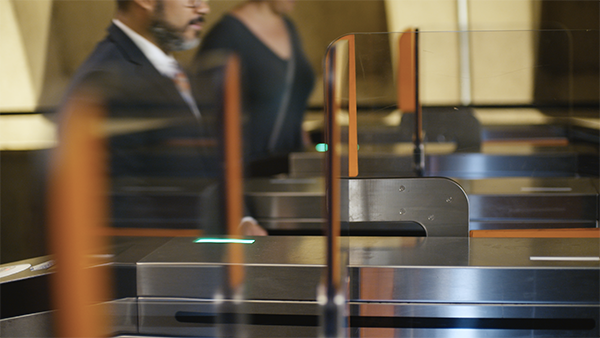
Bus Courtesy Stops
We want to make sure you get to your destination safely. After hours, you can request a stop along the route between the usual stops. From 9 PM to 5 AM, just let the bus operator know when you get on the bus that you'd like a courtesy stop. Pull the stop cord as you near where you've asked them to let you off.
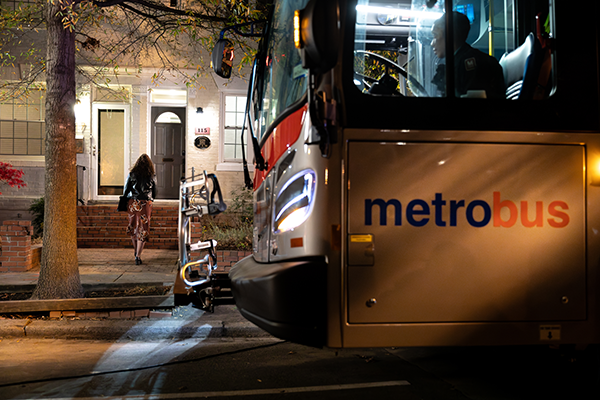
Crisis Intervention Specialists
We care about everyone in our community and model the same behavior we want to see. That means treating everyone with respect. Our trained specialists are there to assist customers who are experiencing mental or physical challenges and need to be connected to the appropriate resources.
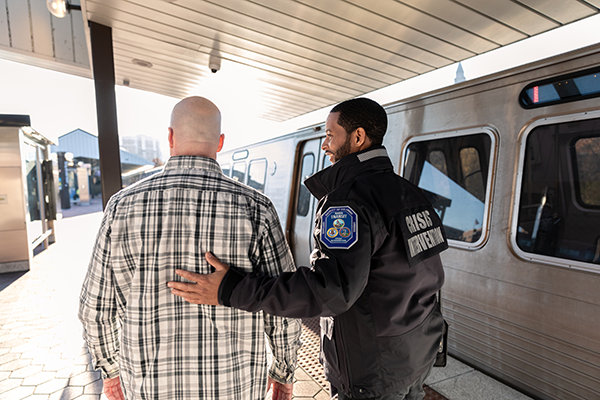
Metro Transit Police Department
Your safety is important to us. Over the past year, Metro Transit Police Department (MTPD) has partnered with law enforcement agencies throughout the region to put more officers on buses and trains as well as in and around stations. We have more surveillance to better serve your needs. We encourage you to text MyMTPD (696873) for assistance.
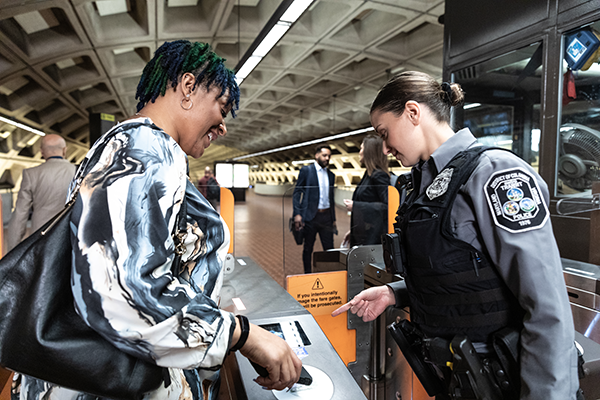
Monitoring and Communication
We are breaking down silos to better serve our customers. The new Metro Integrated Control and Communications Center (MICC) brings all facets of our operations into one room and allows us to monitor and better respond to incidents in real time. We can view all video footage from stations, trains and buses from the command center. It's also where we receive emergency calls and texts to MyMTPD.
The MICC
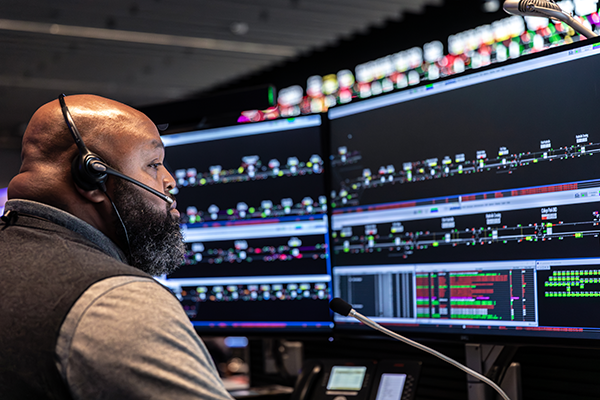
Metro Ambassadors
Improving your customer experience is top of mind. If you see someone in a yellow Metro polo shirt or jacket, that's a Metro Ambassador. Their job is to help you with any questions, concerns or assistance you need.
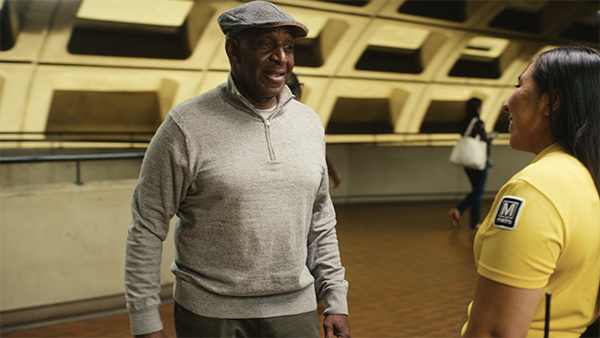
Rail Maintenance
We are committed to maintaining a safe system. To keep you moving, we work to maintain a state of good repair by inspecting and working on tracks, railcars, and buses at night and on weekends. We design our maintenance schedules to prevent problems before they happen.
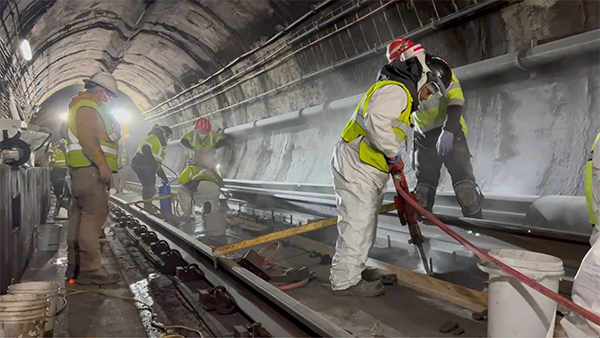
Station/System Maintenance
In response to your feedback, we've made several safety-related changes in the system. We've installed brighter lights and slip-resistant floor tiles. We've also added screens with clear, detailed information at our bus stops and in stations.
Station Maintenance/System Maintenance
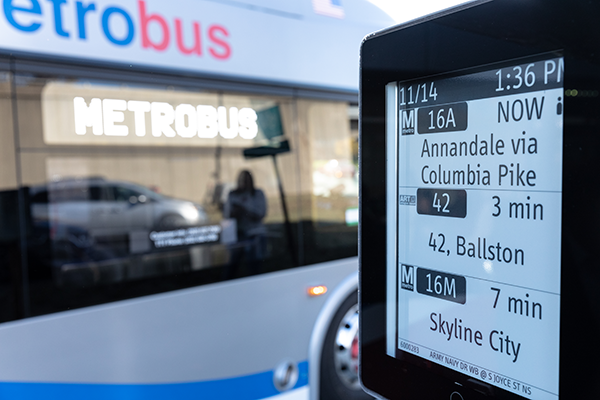
Emergency Preparedness
The publications and websites below offer practical how-to guides instructing Metro customers and area residents in emergency preparedness.
For information on Metro's own safety tips and emergency precautions and preparations, please see the Metrobus and Metrorail safety page and our safety and security FAQ.
SMS and ASP
The Washington Metropolitan Area Transit Authority (WMATA) Agency Safety Plan is a blueprint for keeping WMATA safe. It outlines WMATA's top safety priorities and how WMATA implements a proactive approach to managing safety risk and preventing incidents, a process known as the Safety Management System (SMS). In 2020, WMATA submitted its first Agency Safety Plan, which was certified by the Federal Transit Administration, an agency of the United States Department of Transportation. The WMATA Agency Safety Plan is updated annually to reflect lessons learned, process changes, and other updates to strengthen our proactive safety efforts.
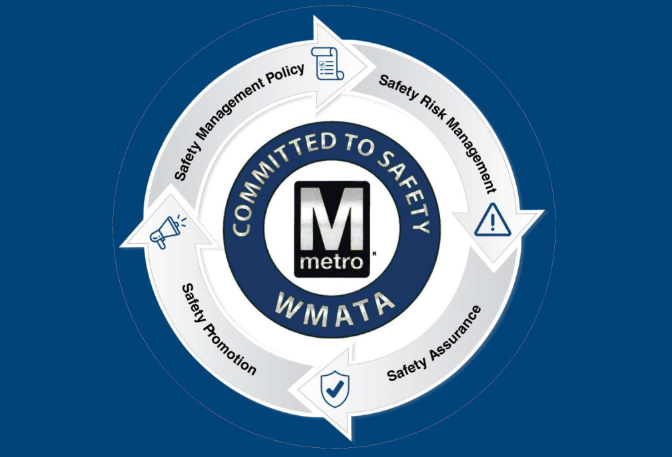
Metro Safety Community Toolkit
As a Metro partner, we appreciate your help in spreading the word about Metro Safety and keep those who will benefit most from this program informed and engaged. Access the toolkit here.